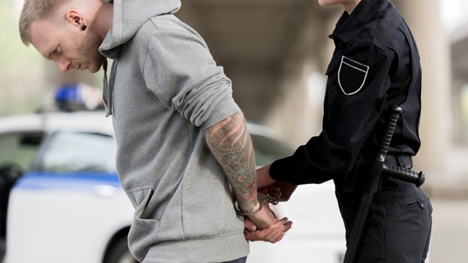
Out of the two categories of crime that is felony and misdemeanor, a misdemeanor is a category that includes crimes that are lesser in seriousness and their effect, thereby do not tend to cause loss or harm to life and property. On the other hand, felonies include crimes that are more serious and have the tendency to cause loss or harm to life and property.
As the seriousness of both the categories of crime differ, so their charges and the punishment different the misdemeanor charges do not exceed incarceration of more than one year and that too in a local county jail or some penalties, while felony charges always lead to incarceration of more than one year and may go up to life sentence.
Categorization of Misdemeanor Crimes:
Though misdemeanors include less serious crimes but the to understand more clearly misdemeanor crimes can be broadly categorized into:
- Crimes Against Person: The crimes that are done against any person may result in misdemeanor charges like assault, battery, false imprisonment, false reporting, harassment. Minor fights can be a misdemeanor, but if the fight accidentally resulted in serious injury then it can result in a felony charge.
- Crime Against Property: Common misdemeanors done against property comes under this category like theft, larceny, shoplifting, etc
- Crime against public safety or order: If an action of anyone disturbs the peace of the society or disturbs the rules and regulations related to the society then it will be considered as a crime against public safety and order. This may include crimes like disorderly conduct, noise violations, prostitution, and minors under the influence of alcohol.
Common Misdemeanor Charges: States can have their criteria for what crimes to be considered as misdemeanors. Though misdemeanor includes a wide range of crimes, some of the most common misdemeanors are:
- Driving under influence (DUI), drunk driving
- Violation of traffic rules
- Theft, larceny, any crime involving property theft
- Possession of drug, or minors consuming alcohol
- Perjury crimes
- Possession of illegal weapons, etc
Penalties of Misdemeanor Charges:
In the United States, the punishment for the misdemeanor may vary from state to state, in some case the accused may be sent to probation, other punishment may include:
- Jail: The maximum sentence for a misdemeanor is incarceration up to one year and that in local county jail.
- Part-time incarceration: The guilty will have to serve part-time in a local jail, like a day or two, or on the weekends.
- Probation: It means a time of regulation or supervision of the culprit instead of sending to jail.
- Community Service: For some of the least serious crimes the convicted has to serve unpaid work for the community.
Some of the states classify misdemeanors as classes or levels, and this classification help in determining the crimes and the sentence for the crime. According to the classifications, the punishments can be:
- Class A or Level 1 misdemeanor: Incarceration up to one year or/and a $ 2,500 fine. This is the most serious of all the misdemeanors and there is a very minute difference between class A misdemeanors and felony, in fact, sometimes class A misdemeanors can be treated as felonies.
- Class B or Level 2 misdemeanor: Incarceration for up to six months or/and $1,000 fine.
- Class C or Level 3 misdemeanor: Incarceration for up to three months or/and $ 500 fine.
- Class D or Level 4 misdemeanor: no incarceration or/and $ 250 fine.
What, if a juvenile is charged with a misdemeanor?
If the accused is under 18 years of age, then he/she must have a parent or guardian during the court proceedings and the case will proceed as an adult case. If the defendant is found guilty, they will have to serve their time in a juvenile facility. You can also hire a juvenile crimes attorney to help you with the legal formalities
Consequences Of Misdemeanor charges?
Though misdemeanor charges do not lead to serious penalties, even the most common misdemeanor charges are permanent criminal records that are public and everyone knows about them. The charges may act as a hindrance in both personal and professional life-affecting relationship with family members or fellow workers
A misdemeanor charge may lead to cancellation of driving license, difficulty in getting a scholarship, loan, government job, and even some of the private institutions perform a background check before hiring.
The misdemeanor charges are the charges for the crimes that are of less seriousness than a felony, but these charges are permanent criminal records that may act as a hurdle in many circumstances.
At Getlegal, get detailed information of all the misdemeanor charges and their consequences.





